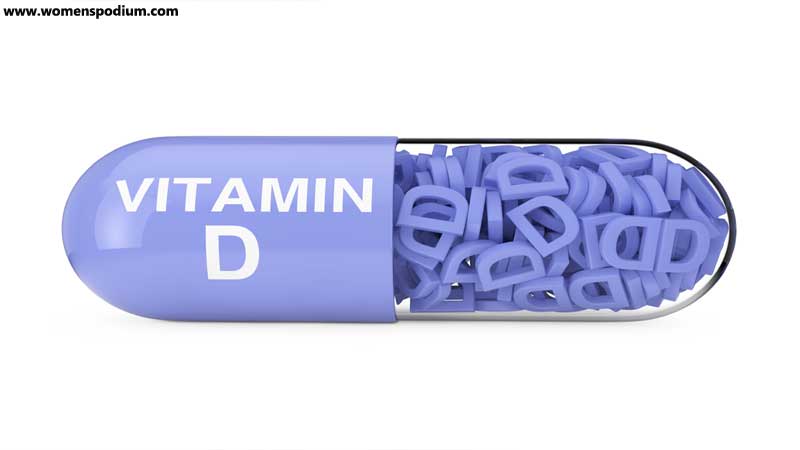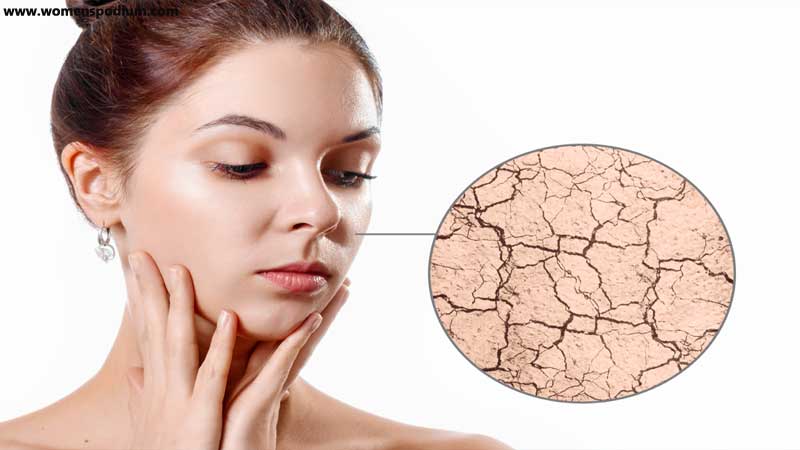
Dermatologists most frequently discuss vitamin D skin care due to its numerous health benefits, significantly for the skin. Generally, vitamin D is essential for building strong and healthy bones because it helps the body absorb calcium. However, vitamin D is equally important to keep our skin healthy and glowing. When exposed to sunlight, dehydrocholesterol in our skin absorbs UV B radiation and gets converted to pre-vitamin D3, which in turn isomerizes into vitamin D3. Moreover, vitamin D has anti-inflammatory and neuroprotective properties and supports brain cell activity.
Generally, our body produces vitamin D from sunlight in two forms: vitamin D2 and D3. Only a few foods naturally contain vitamin D, such as fresh milk, cereal, and fatty fish. The amount of sunlight needed to produce sufficient amounts of vitamin D varies with a person’s age, skin color, changing seasons and time of day, and medical conditions. With age, the production of vitamin D in the skin decreases. Vitamin D deficiency increases skin problems because the immune system is weakened, which results in dryness and skin infection.
Benefits Of Vitamin D
Vitamins are essential for the skin, especially vitamins C and D. They play an important role in maintaining skin health. Generally, vitamin D is produced in two forms: D2 and D3. Vitamin D3 is synthesized after exposure to UVB sun radiation. However, vitamin D2 is absorbed through food. Dermatologists suggest proper sun exposure because this is the only way our skin naturally produces vitamin D3. There are numerous advantages to vitamin D3, such as its ability to create an anti-oxidant defense, increase moisture, and prevent premature aging. Let’s look at vitamin D’s advantages for the skin.
1. Reduce Inflammation

Vitamin D has anti-inflammatory properties. It cures skin diseases and hydrates the skin. Vitamin D is also added to creams to treat eczema, vitiligo, and psoriasis.
2. Anti-Bacterial Properties

The sunshine vitamin improves the immune system and has anti-bacterial properties as well. Certain receptors become active whenever germs interact with the skin. Moreover, it creates a barrier between skin and microbes. Sebaceous glands in the skin function best with vitamin D3. It secretes natural oils that create a barrier and moisturize the skin.
3. Boost Your Immune System

The skin is our body’s outermost layer and our first line of defense. Generally, the activation of immune cells such as macrophages and monocytes requires vitamin D. These cells are known as immune system cells and fight and protect the body against foreign substances. Moreover, vitamin D is essential for controlling T and B cells. These cells together make up the majority of the adaptive immune system.
4. Protect The Skin Against UV Rays

According to scientific research, vitamin D is crucial for controlling cell growth. Generally, vitamin D3 offers protection against skin damage caused by UV light. It improves cell turnover and lessens the redness caused by radiation.
5. Improves Healing

According to research, vitamin D helps in the production of an essential protein called cathelicidin. This protein helps restore and repair injured skin tissues and fight bacteria. This protein, in particular, is required for skin repair. Moreover, Vitamin D has crucial anti-oxidant and anti-aging properties.
How Do We Get Vitamin D?

According to research, people with darker skin, especially those from the Middle East, are more likely to suffer from vitamin D deficiency because the melanin in their skin has a lower ability to make vitamin D. The amount of vitamin D your body produces is determined by your lifestyle, location, sunlight exposure, and food choices.
Ultraviolet A (UVA) has a longer wavelength and is associated with skin aging. Ultraviolet B (UVB) has a shorter wavelength and is linked with skin burning. UVB radiation interacts with skin proteins and creates vitamin D (D3 and D2) in the body. These vitamins then enter the kidney and become active. The majority of our vitamin D is obtained from sunlight.
Moreover, dermatologists say 10 minutes of sunlight at noon is quite enough for the body. Sunscreen doesn’t block 100% of the sunlight. However, it reduces the chances of skin cancer. So it’s better to use sunscreen to avoid the negative impact of the sun.
Another way to get vitamin D is through food, but only a few foods have vitamin D in them, like oranges, milk, eggs, and fish. According to the National Institute of Health, an average adult requires 600 IU of vitamin D per day. However, vitamin D consumption also depends on climate, diet, and skin tone. Many children, women, and men are suffering from a vitamin D deficiency that can be overcome by taking a supplement.
How Can Lack Of Vitamin D Affect Your Skin?

Lack of sunlight causes vitamin D deficiency in the body. There are various signs of vitamin D deficiency.
- Skin dehydration or dryness
- Increased inflammation is the root of skin conditions like rosacea, eczema, and acne.
- Skin rashes and premature aging
- Wounds heal slowly
- A weak immune system
Why Is Vitamin D Skin Care Necessary?

Generally, vitamin levels fall during the winter months. Determoatogist recommends using oral supplements and vitamin D skincare to avoid vitamin D deficiency. Vitamin D skin care products prevent skin damage, moisturize, reduce puffiness, decrease fine lines and wrinkles, and have anti-aging properties. Furthermore, using SPF 50 plus sunscreen and limiting sun exposure to no more than a few minutes also helps keep the skin healthy.
Vitamin D is a fat-soluble and important nutrient for keeping skin healthy. It has multiple benefits for the skin, muscles, and bones. Generally, we get this vitamin from sunlight. However, people suffering from vitamin D deficiency can overcome this deficiency by taking health supplements, leading a healthy lifestyle, and following a vitamin D skincare routine. Vitamin D resolves all types of skin diseases and reduces the risk of skin cancer.
Also Read: Everyone should take food rich in Vitamin D because it is vital for our body’s optimum functioning.





